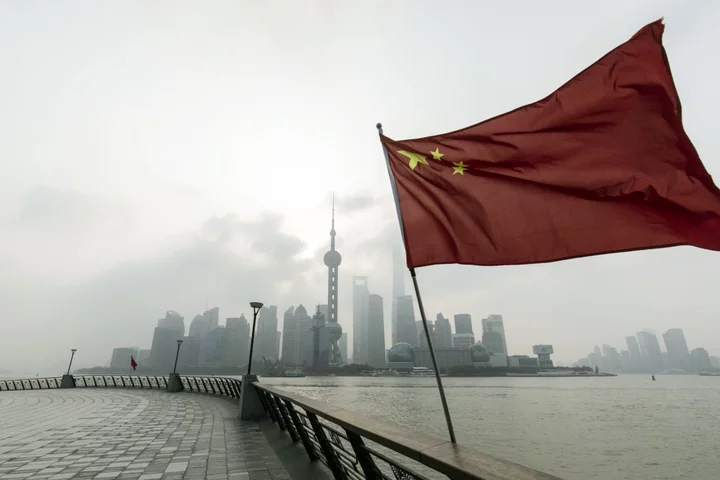A US plan to restrict investment in China is likely to apply only to Chinese companies that get at least half of their revenue from cutting-edge sectors such as quantum computing and artificial intelligence, people familiar with the matter said.
The revenue provision would limit the scope of an executive order the Biden administration is expected to unveil in the coming days as part of a push to limit Chinese access to sensitive technology. The rule would allow US private equity and venture capital firms to put their money in larger Chinese conglomerates that may have artificial-intelligence divisions but get most of their revenue from other sources.
The people who detailed the current thinking about the order asked not to be identified discussing a proposal that has yet to be released. One of the people said the order will prohibit investments in AI for military end users while requiring notification for investments in other AI activity. It is expected to ban investments in some quantum computing activities, such as key encryption and sensing, as well as certain super-advanced semiconductors.
That person also said the order will take about a year to go into force given the time required for additional industry comments and rule-making. It won’t be retroactive so there wouldn’t be restrictions on investments made during that period.
Read more: US Plans Narrow China Tech Investment Limits, Likely by 2024
The White House declined to comment, and the Commerce and Treasury departments didn’t immediately respond to requests for comment.
US investors will be prohibited from investing in the most advanced semiconductors, specific areas of quantum computing, and AI activity designed for military end users, the person said. Investments in other AI activity in China will require notification, but won’t be prohibited.
The executive order, which has been more than a year in the making, is another prong in the Biden administration’s effort to limit China’s access to American technology and to funding to fuel its own innovation in areas that may pose a US national-security risk.
At the same time, President Joe Biden is determined to improve ties with Beijing and has recently sought to underscore that the order will be narrow in scope and shouldn’t damage ties. The final version is expected to be far less ambitious than the earliest versions, and will likely only apply to new investments.
Last month, Treasury Secretary Janet Yellen said the order will be “narrowly targeted” and wouldn’t have a “fundamental impact” on the investment climate for China.
Yellen Says US Investment Curbs Won’t ‘Fundamentally’ Hurt China
Even with the administration messaging, China has pushed back against the proposed investment curbs. In July, Chinese foreign ministry spokeswoman Mao Ning said the country opposes the U.S. “politicizing and weaponizing trade and tech issues.”
The provision on revenue would mean that Chinese companies most affected by the limits will be early-stage Chinese startups. That’s intentional: The administration wants to make sure American investors aren’t helping Chinese companies develop technology and outpace the US. The difficulty of verifying the revenue streams for private Chinese startups may mean cautious US investors will pull back more than required.
--With assistance from Daniel Flatley and Billy House.

